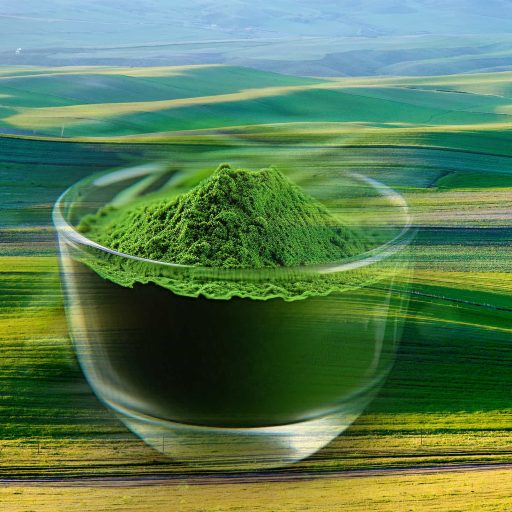Spirulina industry, Otok Flag, photobioreactor, geographical indication
productsIn Otok Banner, 38° north latitude of China,
the world’s largest spirulina industry base is reshaping the industry benchmark with the “science and technology + ecology” model.
The average annual sunlight here exceeds 3,000 hours,
the temperature difference between day and night reaches 15℃, and the water quality of the natural alkali lake is pure,
which provides a unique growth environment for spirulina.
Industrial scale: from “algae powder export” to “biopharmaceutical”
The Spirulina Industrial Park in Otok Banner has an annual output of 5,200 tons of high-quality algae powder and 900 tons of algae flakes.
The products are exported to more than 40 countries and regions,
and the annual output value will exceed 500 million yuan in 2023.Its core advantage is:
Variety optimization: Cultivating “Ezhao No. 1” and “Ezhao No. 2” through gene editing technology, the yield per mu increased by 20%;
Aquaculture innovation: The column photobioreactor realizes constant temperature aquaculture throughout the year, with a water resource utilization rate of 95% and an output of 8 times that of the traditional model.;
Quality control: Each batch of products needs to pass more than 20 tests, establish a full-process traceability system, and obtain the “China-EU Mutual Recognition of Geographical Indications” and “Mongolian” character mark certification.
Policy and market two-wheel drive
China has included spirulina in the key support projects of ”ecological fisheries” to encourage circular aquaculture and the application of green technologies.In 2023, the domestic spirulina market will reach 6.83 billion yuan, and the field of functional health products will account for more than 60%.Leading companies such as Green A Biological have expanded through mergers and acquisitions of Yunnan bases and overseas channels, ranking among the top three in the world, while foreign brands have a market share of less than 5% due to approval barriers and local preferences.
Future trends: cross-border breakthroughs from food to energy
The “hidden skill” of spirulina, biological hydrogen production, is attracting the attention of the scientific community.Its hydrogen-containing acid can efficiently produce hydrogen at room temperature, with low energy consumption and no pollution, and is expected to become a new energy source to replace petroleum.In addition, the research on cutting-edge technologies such as spirulina exosomes and probiotics is promoting its extension to the field of biomedicine.
Spirulina industry, Otok Flag, photobioreactor, geographical indication products
